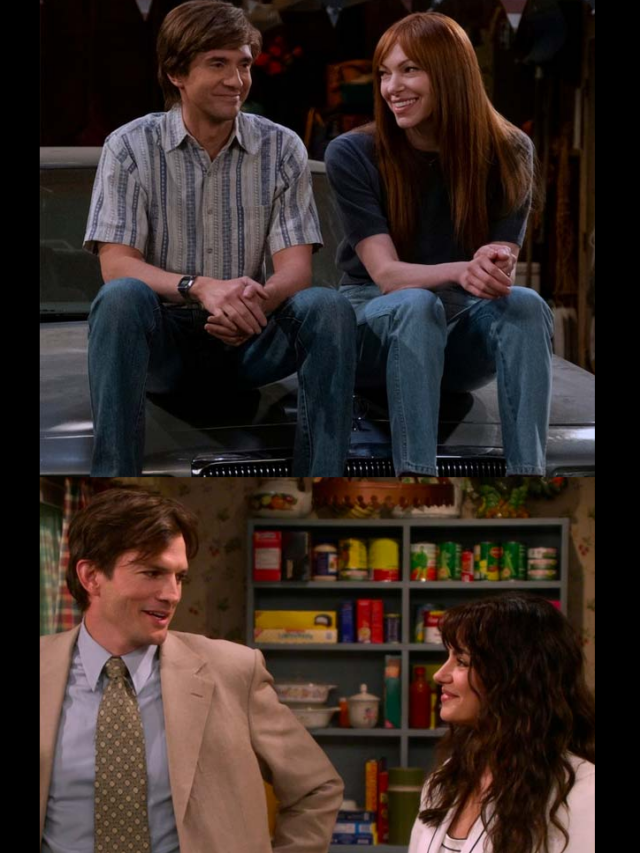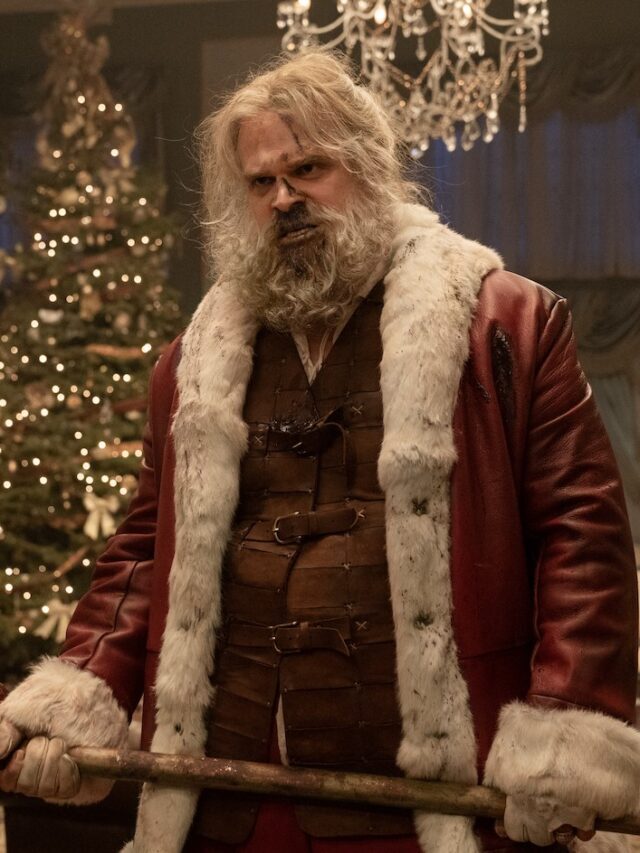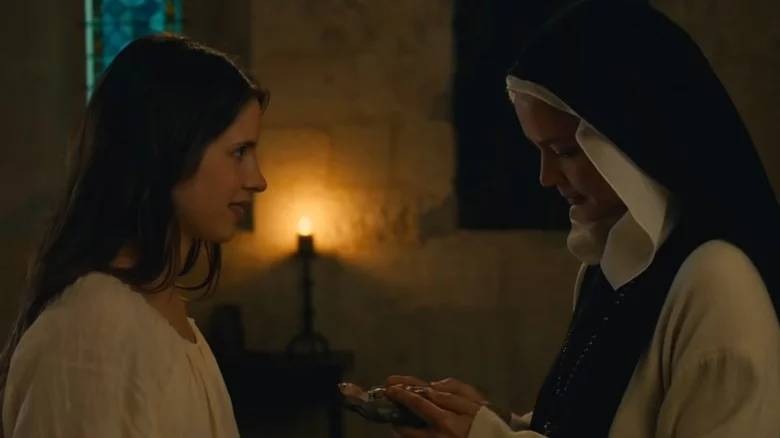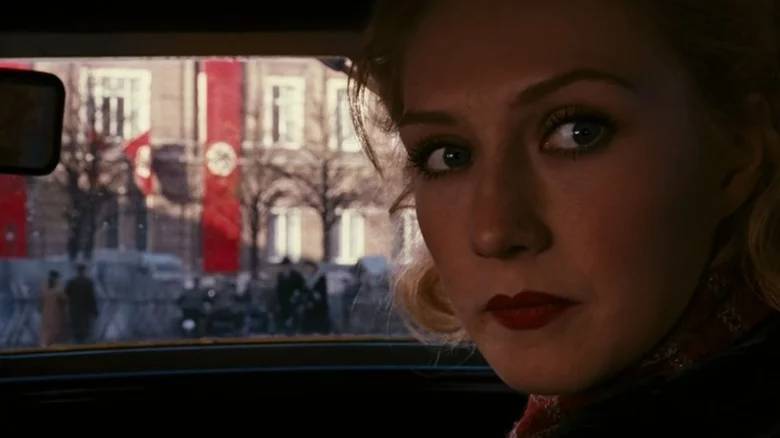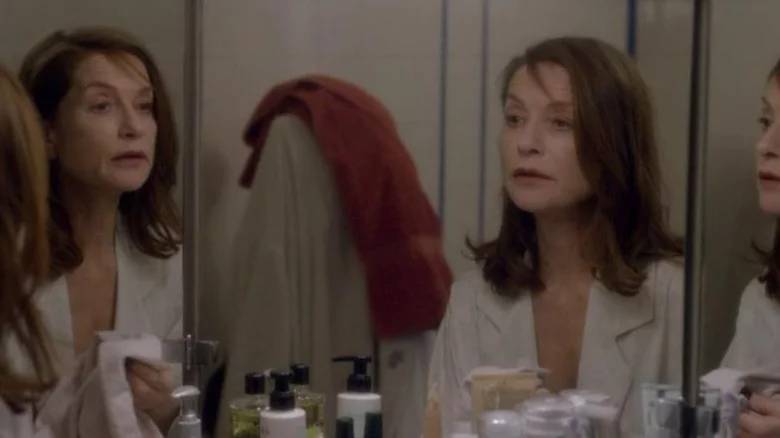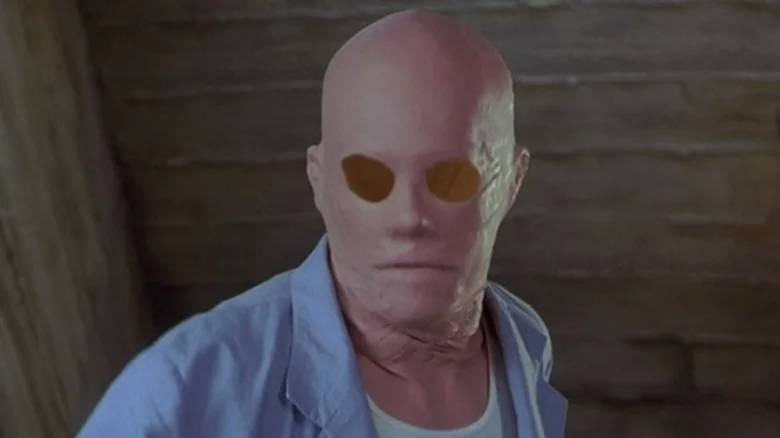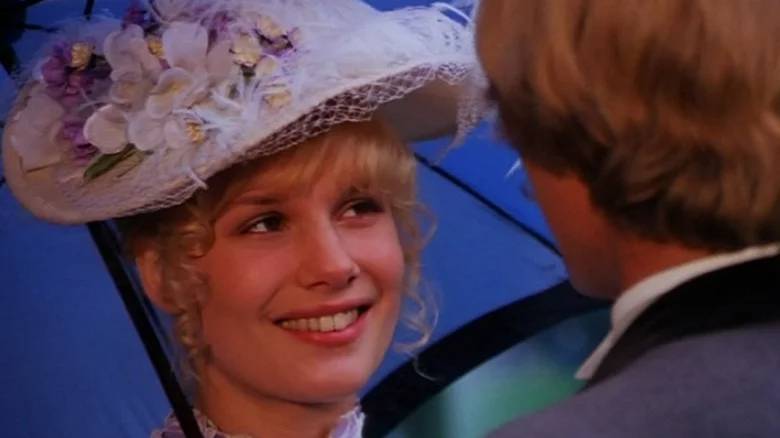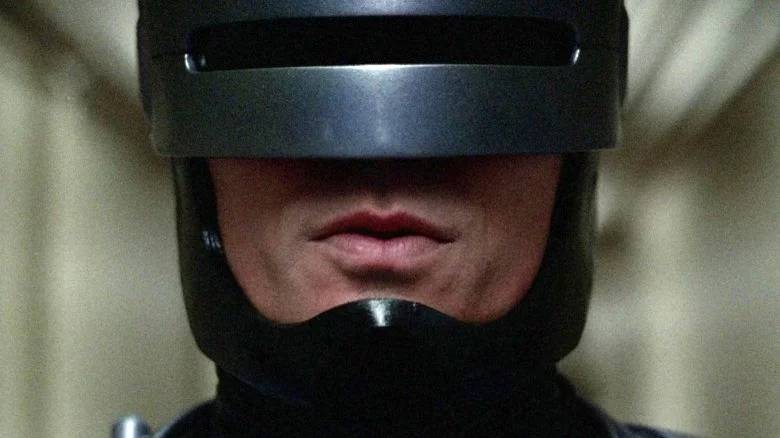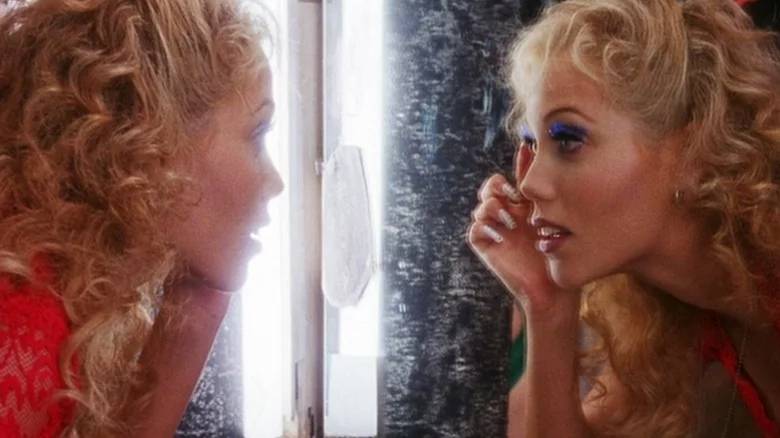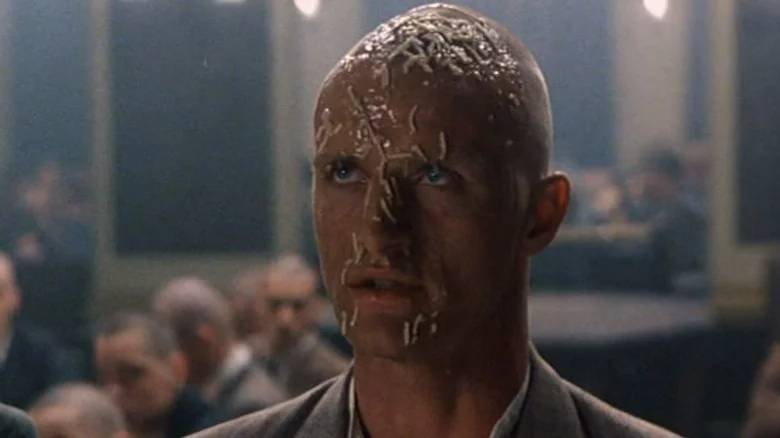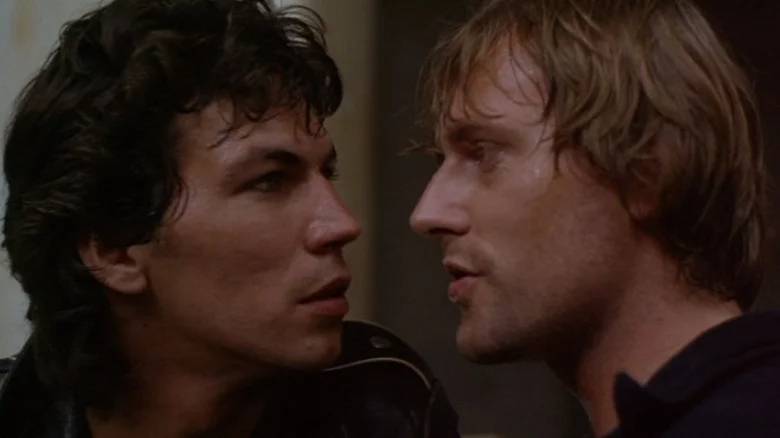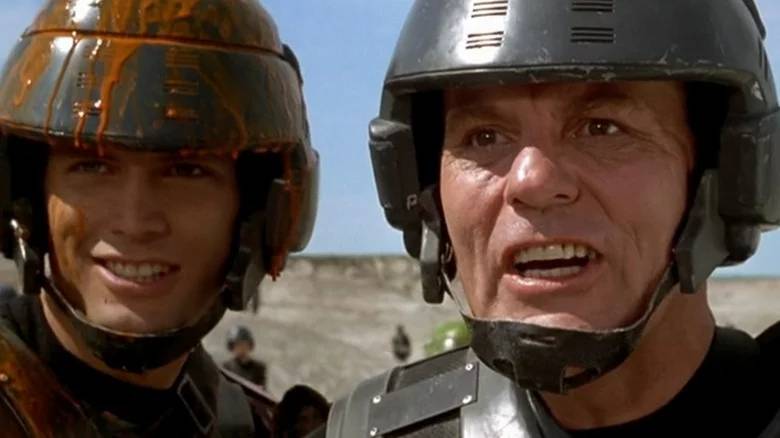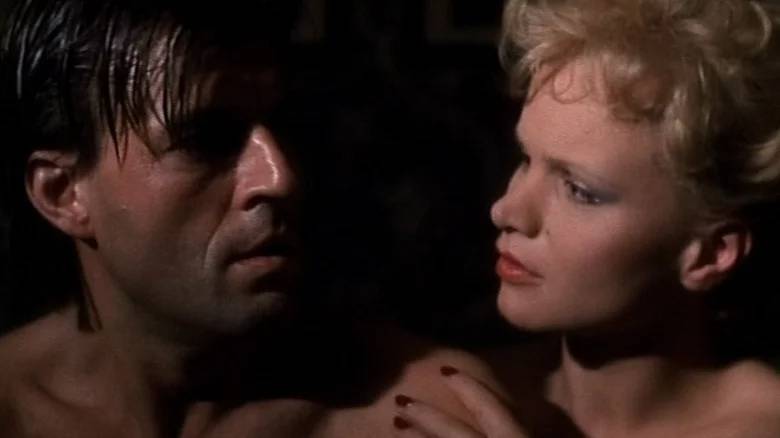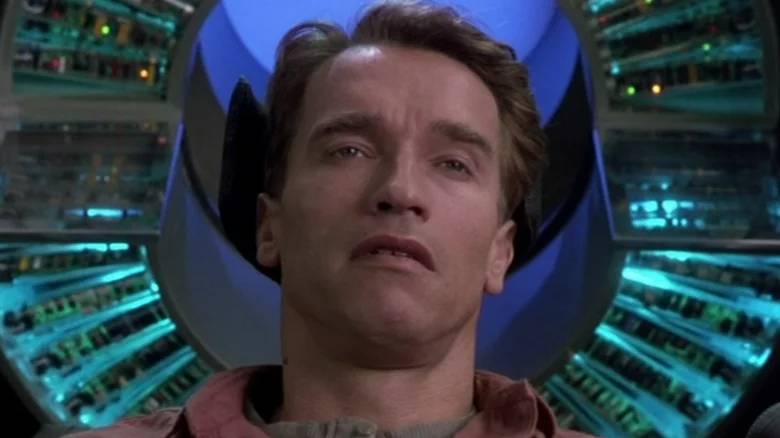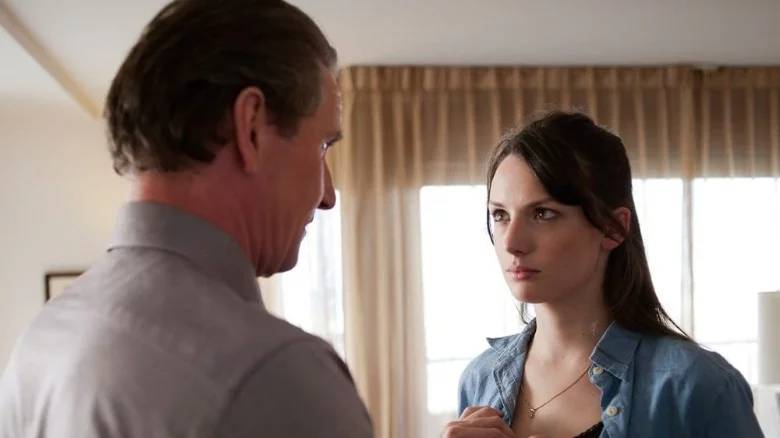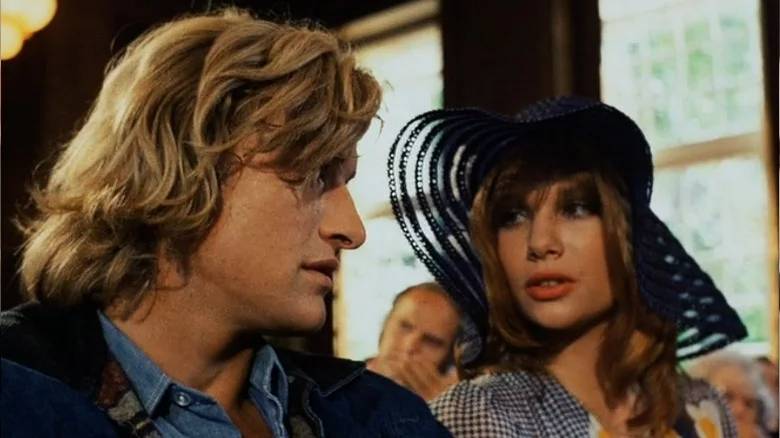The work of Paul Verhoeven can be described in a variety of ways. The obvious ones are “sex” and “violence,” but “glee” seems to fit the bill the best. When you see a Verhoeven movie, you can almost hear him smiling as he creates absurd scenes and imagery that are sure to enrage some people. Whether they are spies in peril or would-be showgirls, the characters in his films frequently represent people on the verge of something extraordinary. Everything is in excess in Verhoeven’s movies. He pushes his performers to go above and beyond in order to get the kinds of performances he desires; the outcomes could be fantastic or they could be remembered for years to come. Verhoeven’s craft is the highlight of his work in both cases.
The most infamous aspects of Verhoeven’s films—their bloody sequences, their graphic sexuality, and the thrilling setpieces that overshadow the quieter, more reflective moments, which are surprisingly common—could fill thousands of words in a study of his work. The female characters in Verhoeven’s movies, however, frequently outshine the male ones and have more nuanced reasons. His body of work includes blockbusters with depressing and doomed protagonists as well as movies that walk the boundary between art and pornography. When you delve beneath the surface, you’re left with a strong filmography that, despite its flaws, is nonetheless interesting. No of the genre, Verhoeven’s movies are complex and difficult to categorise.
Table Of Content
Basic Instinct
“Basic Instinct” is the stuff of Hollywood history with a swoon-worthy tune and one of the most enduring main characters ever. It is a movie that has been imitated countless times and serves as the model for contemporary sensual thrillers. Here, Verhoeven emulates Hitchcock by appropriating the doubles, blondes, eerie staircases, and San Francisco settings from “Vertigo” and similar films. The result is a brash, violent, and immensely erotic movie. It’s excellent.
In the movie “Basic Instinct,” Michael Douglas plays Nick Curran, a troubled police officer who is looking into the murder of a rock singer. As the investigation progresses, Catherine Tramell (Sharon Stone), the deceased musician’s occasionally girlfriend who published a book with an identical murder, is one of the first names on the list of possibilities. After engaging in sexual activity, Nick and Catherine quickly find themselves playing a challenging game, the outcome of which is not known until the very last shot.
“Basic Instinct” created an entire genre of films that were tremendously successful by mastering the mix of violence and sensuality that the erotic thriller required. The real star of “Basic Instinct” is, as always, Verhoeven and his artistry. Sharon Stone’s performance is irreplaceable, and the character she creates is a Hollywood milestone.
Benedetta
The most recent movie Verhoeven made, “Benedetta,” may be the one in which his impulses are the least repressed. Given that this movie is about lesbian nuns, it is even more surprising that the sex, violence, and humour are all turned up to 11. The titular nun’s (Virginie Efira) perception of sex changes as she gets older. Her charged dreams and premonitions, which reach their height with the entrance of Bartolomea (Daphne Patakia), a helpless girl whom Benedetta rescues out of compassion, complicate things even further. Bartolomea is the ideal vehicle for Benedetta’s pleasure, which, according to the hot Jesus of her dreams, doubles as her road to divinity. The two fall in love very soon.
Despite being bloody and delightfully filthy, “Benedetta” also has its tender and heartfelt moments. It perfectly captures Verhoeven’s style, who may be the only director to dare to make a dildo made from a sculpture of the Virgin Mary an essential story component. While criticising priests and hypocrites, “Benedetta” does not promote an anti-Catholic viewpoint. It is also ineligible for the nunsploitation category despite the iconic sex toy. While the movie’s take on faith may be unconventional, it’s a movie that takes God seriously, much like Benedetta herself.
Black Book
Verhoeven revisited World War II many years after “Soldier of Orange” to examine the Nazi occupation of the Netherlands from a fresh perspective. “Black Book” is superior to “Orange,” despite being less well-known.
A Dutch Jew named Rachel Stein (Carice van Houten) joins the resistance after seeing her family being murdered. In addition to being entrusted with spying and wooing Nazis as part of her job, Rachel performs in a cabaret and unwisely falls in love with one of them. Stein is radiant and bold like the best Verhoeven heroines, and van Houten gives a passionate performance that elevates “Black Book” to one of the most memorable entries on this list, despite the fact that it isn’t as well-known as some of the others.
The movie is brimming with concepts. It’s a movie about the Holocaust, an erotica thriller, a war movie, and possibly more, never feeling too at ease in any one genre. The movie changes direction as it starts to get too depressing. The writing delivers a stomach punch when you become too at ease. It serves as the ideal illustration of Verhoeven’s abilities as an entertainer and demonstrates his capacity for producing serious and compelling work.
Business Is Business
Verhoeven was given the opportunity to direct his debut feature picture, which was released in 1971, after working in television and producing documentaries. The excellent debut film “Business Is Business” follows Greet (Ronnie Beerman) and Nel (Sylvia de Leur), two prostitutes operating in Amsterdam’s Red Light district, as they deal with the men they come into contact with both professionally and personally.
Although “Business Is Business” is presented deceptively as a lighthearted comedy with lots of slapstick, it was groundbreaking when it first came out and still remains revolutionary today, especially in its non-judgmental attitude toward sex and sex work. Despite the difficulties Greet and Nel confront and the numerous insults they receive from the men in their lives, they don’t hide anything. “Business Is Business” is unmistakably a forerunner of some of Verhoeven’s best and most memorable work, which frequently includes women who are absolutely shameless whether they are performing on stage or hatching elaborate murder schemes.
Elle
The movie “Elle” from Sony Pictures Classics begins with a rape and gradually changes into a tale of self-discovery. What begins as a thriller evolves into a drama, then a comedy, and finally into something wholly original but remarkably seamless. Our main character, Elle (Isabelle Huppert), gradually develops an obsession with the man who sexually assaulted her. In Huppert’s portrayal of Elle, the character is depicted as being obviously stunned but refusing to stop living or see herself as a victim. Elle starts getting enigmatic text messages as the movie progresses and more male characters appear, which encourages her to defend herself and hunt out her attacker. Despite everything that is going on, Verhoeven and Huppert are on the same page and are both mesmerised by the main character and her personality.
The kind of movie “Elle” isn’t supposed to succeed, and maybe it wouldn’t with a different actress or director. Right now, it’s an almost flawless piece of alchemy. Watching it is a terrifying and amusing experience that has a lot to say about the nature of men, women, consent, and power.
Flesh and Blood
The first English-language picture by Verhoeven is a confusing blend of fantastical clichés and breathtaking splendour. “Flesh and Blood,” which was published in 1985, was another work in the heavily marketed fantasy subgenre of the time. Although it features well-known performers in the early stages of their careers, intriguing historical elements, and the tale of two warring mercenary clans, it never manages to take off. Martin (Rutger Hauer), seeking retribution against his former employer, kidnaps Agnes (Jennifer Jason Leigh), the young lady who is engaged to his employer’s son. It leads to a love triangle.
There is lots of sex and violence in “Flesh and Blood,” which isn’t necessarily a terrible thing in and of itself, but there isn’t anything else to back up this narrative. A definite beginning is followed by a confusing middle and an unmemorable conclusion. Once the entire plot had been set into action, about a half-hour into the movie, I found myself wanting for sympathetic characters and greater definition for the antagonists and heroes.
Hollow Man
When rating Verhoeven’s films from worst to best, we must start here, even though the order of the other movies on this list is up for debate. Kevin Bacon and Elisabeth Shue feature in the 2000 film “Hollow Man,” which is based on H.G. Wells’ “The Invisible Man.” It centres on scientist Sebastian Caine (Bacon), who discovers a recipe for invisibility and puts it to the test on himself. For some reason, this turns him into a creep, and there are numerous moments when an invisible Caine plays practical jokes on people, abuses them sexually, and basically ruins their lives.
Verhoeven’s Hollywood career comes to a dismal conclusion with “Hollow Man,” a forgettable movie. It’s a hodgepodge of his worst impulses, full of villains who exist only to be villains, and the script occasionally inserts a rape scene when it runs out of other options.
“Hollow Man” spends the majority of its running time appearing content to follow the script. It’s a movie that, worse than being uninteresting, leans too heavily on the padding surrounding its more impressive, eye-catching set pieces.
Keetje Tippel
Verhoeven’s third picture, “Keetje Tippel,” from Rob Houwer Productions, contains several components that would eventually come to define his style. The story, which takes place in the 1800s, centres on Keetje (Monique van der Ven), a woman from a low-income family who yearns for a better life. When Ketjee eventually meets Hugo (Rutger Hauer), she immediately falls in love with him and sees him as the answer to all of her problems. The path to happiness is never simple and is frequently paved with sexual threats and utter suffering, as is typical of these kinds of movies and Verhoeven’s work in general.
Although “Keetje Tippel” meanders, it doesn’t always go in a bad direction. It’s a really unique movie for a historical piece about a woman, with Verhoeven depicting Keetje as a person with a full three-dimensional personality who deserves to have her own story. It’s also not hesitant to venture into some gloomy areas.
As a director, Verhoeven frequently makes you wonder why sexual violence is so prevalent in his movies, both as a viewer and especially as a woman. Is it Verhoeven’s personal obsession or an indication of how he views the world in general? Both of these points of view can be supported by strong reasons. Verhoeven’s filmography has a few recurring themes, like his female characters’ constancy and his refusal to offer the spectator straightforward solutions, despite the difficulty of some of his work.
Robocop
After “Flesh and Blood,” “Robocop” was Verhoeven’s second movie in the English language. Verhoeven’s opportunity to helm a high-profile action film following that box office failure is undoubtedly a reflection of the state of Hollywood in the 1980s. Alex Murphy, a police officer who is transferred to one of Detroit’s most violent precincts, is portrayed by Peter Weller in “Robocop.” Murphy is slain by a group of violent criminals on his first day of work, giving the OMNI corporation the opportunity to take his body and create the ideal cop—a cyborg with the skills of the Terminator—out of it.
“Robocop” deviates from the 1980s action movie norm by being clever, hilarious, and melancholy. Fake adverts are cut into “Robocop” throughout its running period. This kind of cunning makes Verhoeven the ideal director since, as an outsider, he can observe America’s fixation with consumerism objectively.
Nevertheless, “Robocop” never loses sight of its main character’s suffering; Murphy, who dreams of both his missing family and the murderers, is unable to completely experience his emotions, even if he can’t escape them. When Schwarzenegger and Stallone starred in “Robocop,” viewing it in the 1980s must have like viewing “The Matrix Resurrections” today: It’s a big-budget movie that delivered the exact opposite of what everyone anticipated.
Showgirls
There is no better way to talk about “Showgirls” than with this statement from Gina Gershon: “I thought I was doing a Wagner concert, [and] learned this is going to be a Britney Spears show,” she told The Daily Beast. “Showgirls” is utterly and inadvertently funny yet being serious in execution, from Elizabeth Berkley’s over-the-top acting to all of the thrusting we have to endure throughout its 131-minute running duration.
In “Showgirls,” a spinoff of “All About Eve,” Nomi (Berkley), a fiery young woman with an enigmatic history, travels to Las Vegas to pursue her dream of becoming a showgirl. She meets Cristal (Gershon), the lead dancer of the greatest performance in town, and her boyfriend there, and they become involved (Kyle McLachlan).
The grandiose ambition of “Showgirls” is reflected in the script, which features a large cast of characters and numerous intricate scenes. Despite the much-discussed nudity and sex scenes, “Showgirls” is a stunning movie with vivid colours and lavish sets. Even though it portrays their world as brutal and opportunistic, it values the athleticism of its dancers. Even though “Showgirls” is frequently racialized and misogynistic, it has layers. The most significant ties in the movie “Showgirls” are those between women, despite the fact that it was clearly created by men. They are dancers with aspirations, drives, and inner selves that are beyond the comprehension of the men in the movie.
Soldier of Orange
The Dutch filmography of Verhoeven is pioneering. His early work includes some of the most expensive and acclaimed movies in the nation, as well as other endeavours that shattered box office records and expanded the frontiers of the country’s cinematic endeavours. “Soldier of Orange” was the most costly Dutch movie ever made at the time and helped Verhoeven get a job in Hollywood because it was his first big hit abroad.
The movie, which is set in World War II, examines the Nazi occupation of the Netherlands by focusing on a group of Dutch students who join their nation’s resistance movement. One of them is Erik, an intriguingly portrayed hero by Rutger Hauer, who adopts a non-heroic stance toward a role that in Hollywood would have been played by another hero.
The war movie “Soldier of Orange” is rather orthodox. It’s one of Verhoeven’s more restrained attempts and essentially what you’d expect from a great war film, with the exception of a few inadvertently humorous and odd scenes – at one point, a young woman’s crushes fly with a pencil; at another, pals cover each other in soup. Verhoeven discovers the story’s heart, though, by following a group of friends through time and utilising the war as a backdrop to show us how these relationships develop before falling apart. In contrast to many previous biopics, “Soldier of Orange” shows a national hero as having serious flaws.
Spetters
Verhoeven’s fifth Dutch movie, “Spetters,” which roughly translates to both “Hunks” and “Splatters,” is another coming-of-age tale. It was released by Samuel Goldwyn Films. Additionally, it was because of this production that he was forced to leave the Netherlands and spend 20 years seeking asylum in Hollywood. “Spetters” is a movie that plays like a gritty, enhanced version of “Grease,” with males wrestling with their masculinity and women debating the function and weight of their sex.
In “Spetters,” three buddies are followed by the girl who they are infatuated with and who runs the hot dog stand at the motorcycle races they frequent. “Spetters,” which was published in 1980, addresses contentious topics like sex, homosexuality, and misogyny. However, unlike its American equivalents, this is a movie that isn’t afraid of violence or nudity, and it has numerous sequences that, when it was first released, made viewers uncomfortable.
extreme discomfort We definitely ought to start keeping track of the number of rape scenes in “Spetters,” which at the time was accused of promoting misogyny and homophobia. Ironically, “Spetters” ended up becoming a huge box office hit despite the film’s negative public perception pushing Verhoeven towards Hollywood.
Starship Troopers
One of the few book-to-film adaptations where the storyline largely stays the same but the heart of the narrative is radically changed is “Starship Troopers” from Sony Pictures Releasing. Verhoeven doesn’t have any devotion to the novel at all; in fact, he didn’t even read it, as he admitted to Empire. He inverted Heinlen’s work, which is essentially an enlarged sci-fi military pamphlet, by adding self-awareness to it.
Underneath it all, “Starship Troopers” resembles a love story from high school. In the movie, a group of friends enlist in the military and advance through the ranks as humanity engages in combat with an alien race known as the “Bugs.” Johnny Rico (Casper Van Dien), a fool who joins the army to pursue a girl, serves as the film’s main character. These kinds of subtleties are all over the script: impossible stakes that contrast with the characters’ foolish acts and other stupid antics.
By drawing parallels between the army and the Nazis and filling the movie with the kind of military propaganda we frequently see in the US, Verhoeven elevates the novel, which dehumanised humanity’s adversaries and glorified battle. At the time of its debut, “Starship Troopers” was widely misinterpreted since American audiences apparently took the satire at face value. However, nowadays, the film is mainly regarded as Verhoeven’s masterpiece.
The Fourth Man
Verhoeven is an accomplished author who is aware of his interests. “The Fourth Man” gives Verhoeven complete freedom to be as scandalous as he wants, and he takes advantage of the opportunity to fill every frame with religious imagery, sex, dangerous women, and some very sleazy guys. Verhoeven is able to restrain his impulses when the script and subject matter call for it.
While “The Fourth Man” is more fluid and European than “Basic Instinct,” it doesn’t quite reach the same heights. In the movie, a writer named Gerard becomes quickly involved with Christine, a stunning blonde who may or may not have killed her past three spouses. Gerard develops an obsession with Christine’s other lover, Herman, when they begin having sexual relations. Everything is pretty complicated. Despite being continuously funny and occupying an intriguing middle ground between an art project and a pornographic film, the movie ultimately cares more about style than content.
Total Recall
Verhoeven was forced into a small sci-fi niche after “Robocop’s” enormous success. Nevertheless, Arnold Schwarzenegger was a huge admirer of the director’s dystopian action film and hired Verhoeven right away to make “Total Recall,” which is based on a short tale by Philip K. Dick. It’s a movie that could have taken more serious cues from its own source material or from “Blade Runner,” another Dick adaptation. Verhoeven, on the other hand, made a different decision, utilising Schwarzenegger’s distinctive appeal and his offbeat sense of humour to the movie’s benefit.
The movie “Total Recall” blurs the lines between truth and fiction as it follows Douglas Quaid (Schwarzenegger), a drab construction worker who, in an effort to liven things up, gets implanted with memories of a journey to Mars despite never having taken the trip. When a procedure goes wrong, reality splits in two, creating some genuinely mind-bending scenes. This is the kind of movie that people talk about long after it has ended. “Total Recall” is the ideal example of a movie that has its cake and eats it, too; it’s filled with action and gore that makes it feel like a guilty pleasure, but it’s based on a really compelling theory. It also features some of the best practical effects ever recorded on camera.
Tricked
Before “Elle” received widespread critical acclaim internationally, Verhoeven was best known for his post-1990s films during the period in which “Tricked” was released in 2012. It’s one of Verhoeven’s most understated films, and even if it has the same distinctiveness as the rest of his work, he managed to accomplish a lot by keeping with something straightforward. As a result, “Tricked” is a stride in the direction of films that are bigger, wilder, and more thought-provoking.
“Tricked” is nonetheless knotty and experimental even though it has a rather conventional movie concealed underneath. The movie is divided into two sections: a traditional narrative film with a script written by the audience, and a documentary that shows how Verhoeven makes movies. The documentary part gives the screenplay’s unorthodox structure some perspective, although it’s unmemorable. The fictional portion centres on Remco (Peter Blok), a man who receives a visit from his pregnant former mistress at his 50th birthday party (Sallie Harmsen). His marriage ends, and there are many of fun surprises along the way that are all disclosed in a beautiful way.
Turkish Delight
The fact that “Turkish Delight,” widely regarded as the most popular Dutch movie ever, was shown in American porn theatres saddens and speaks much about our society. It was also Verhoeven’s second movie and the beginning of his working connection with Rutger Hauer; their partnership lasted until they both moved to Hollywood and split up.
Following a tumultuous romance between Eric (Hauer) and Olga (Monique van der Ven), which visits various violent and dramatic locales, is the focus of the movie. It’s a movie that’s obviously a product of its day, a parody of “Love Story” and “The Last Tango in Paris,” but the main character isn’t really likeable, which the director and performer both appear to be aware of. Turkish Delight is one of Verhoeven’s most heartfelt and sincere movies, despite the tonal inconsistency between the brutality and its more saccharine passages. You might perceive Hauer as more than just the replicant from “Blade Runner” after watching it. Just picture a scenario where he was one of the most captivating starring guys in Hollywood!
Our Team DCS includes 5 different writers proficient in English and research based Content Writing. We allow them and encourage them to follow the Entertainment news all day long. Our posts, listicles and even the exclusives are a result of their hard work.

